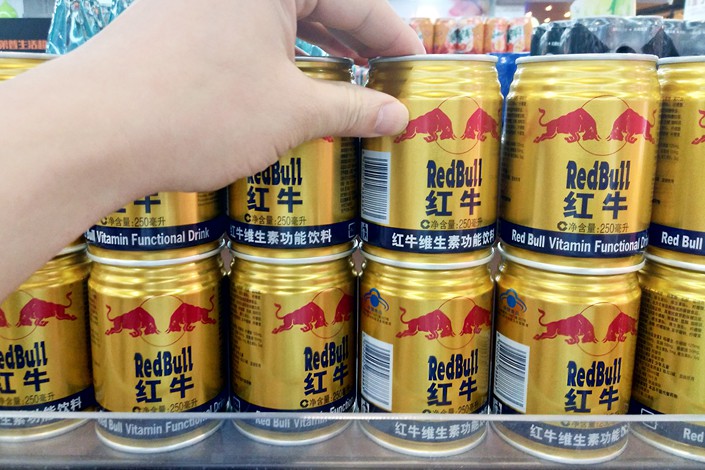Mysteries Shroud Red Bull Dispute

The dispute surrounding popular energy drink Red Bull in China has entered a “Rashomon” phase in which no outsider can tell what has really happened: The Thai owner said the Chinese franchise rights’ 20-year deal has expired, but its Chinese partner said there are still 30 years to go.
The two sides have been locking horns since 2016 with media battles and legal fights. The Chinese partner, which operates local joint venture Red Bull Vitamin Drink Co. Ltd., added a twist to the saga by proclaiming in a statement Tuesday that the contract inked in 1995 granted it a 50-year agreement to manufacture and market Red Bull exclusively in China.
It said that the agreement was signed involving three other parties: China National Food Industry Co., and Shenzhen Sinohao (Group) Co. Ltd., as well as Red Bull’s Thai owner, T.C. Pharmaceutical Industries Co.
Red Bull Vitamin is 95% owned by two Thai companies related to T.C. Pharma, but operated by its Chinese peer, headed by a Chinese-Thai businessman, Chanchai Ruayrungruang, who introduced the drink to China in 1995.
The Thai owner said in a statement late Tuesday that as Red Bull Vitamin’s shareholders, T.C. Pharma’s two related companies never signed a 50-year contract, nor ever extended the original term beyond 20 years. The two companies are currently on the lookout for new partners in China and vowed to press on with local operations. Red Bull Vitamin reached the end of its 20-year-term of operations last month stipulated by the regulations, according to the government’s registry.
But Ruayrungruang’s team is planning to renew the company operations since it said it has an exclusive right to Red Bull in China for 50 years.
When asked by Caixin for comment, both China National Food and Shenzhen Sinohao said they didn’t know about the deal.
Red Bull Vitamin, meanwhile, told Caixin that the Shenzhen regulator in 1995 allowed companies with a foreign background to operate for no more than two decades, hence the operation term of 20 years. In 1998, it moved the firm’s registration records to Beijing, and had planned to renew the deal when it expired this year.
Contact reporter Coco Feng (renkefeng@caixin.com)

- 1Cover Story: China Carves Out a Narrow Path for Offshore Asset Tokenization
- 2Drownings Shake Chinese Enthusiasm for Travel to Russia
- 3China Business Uncovered Podcast: A $15 Billion Bitcoin Seizure and the Fall of a Cybercrime Kingpin
- 4Over Half of China’s Provinces Cut Revenue Targets
- 5In Depth: Inside the U.K.’s China-Linked Shell Company Factory
- 1Power To The People: Pintec Serves A Booming Consumer Class
- 2Largest hotel group in Europe accepts UnionPay
- 3UnionPay mobile QuickPass debuts in Hong Kong
- 4UnionPay International launches premium catering privilege U Dining Collection
- 5UnionPay International’s U Plan has covered over 1600 stores overseas






